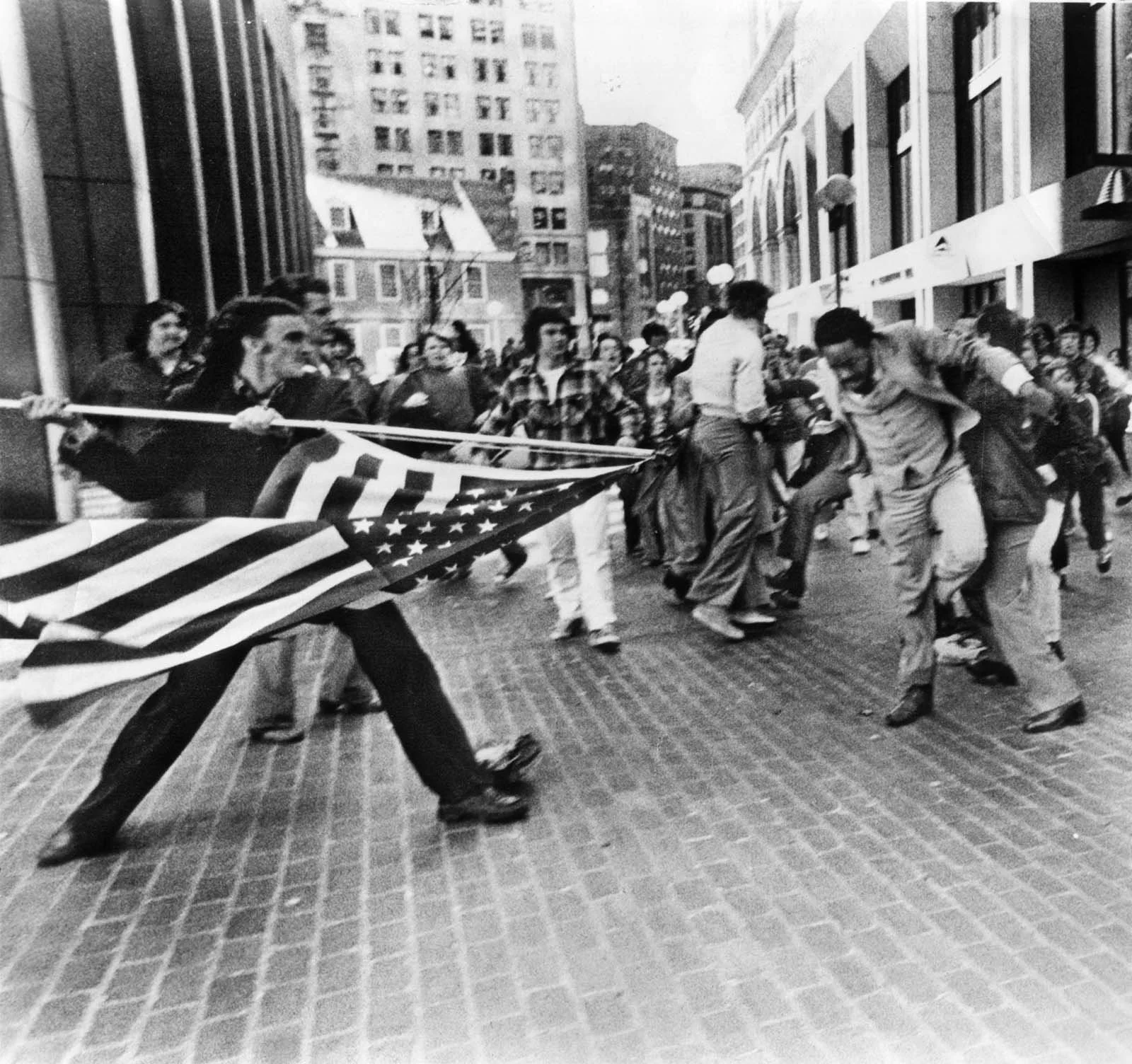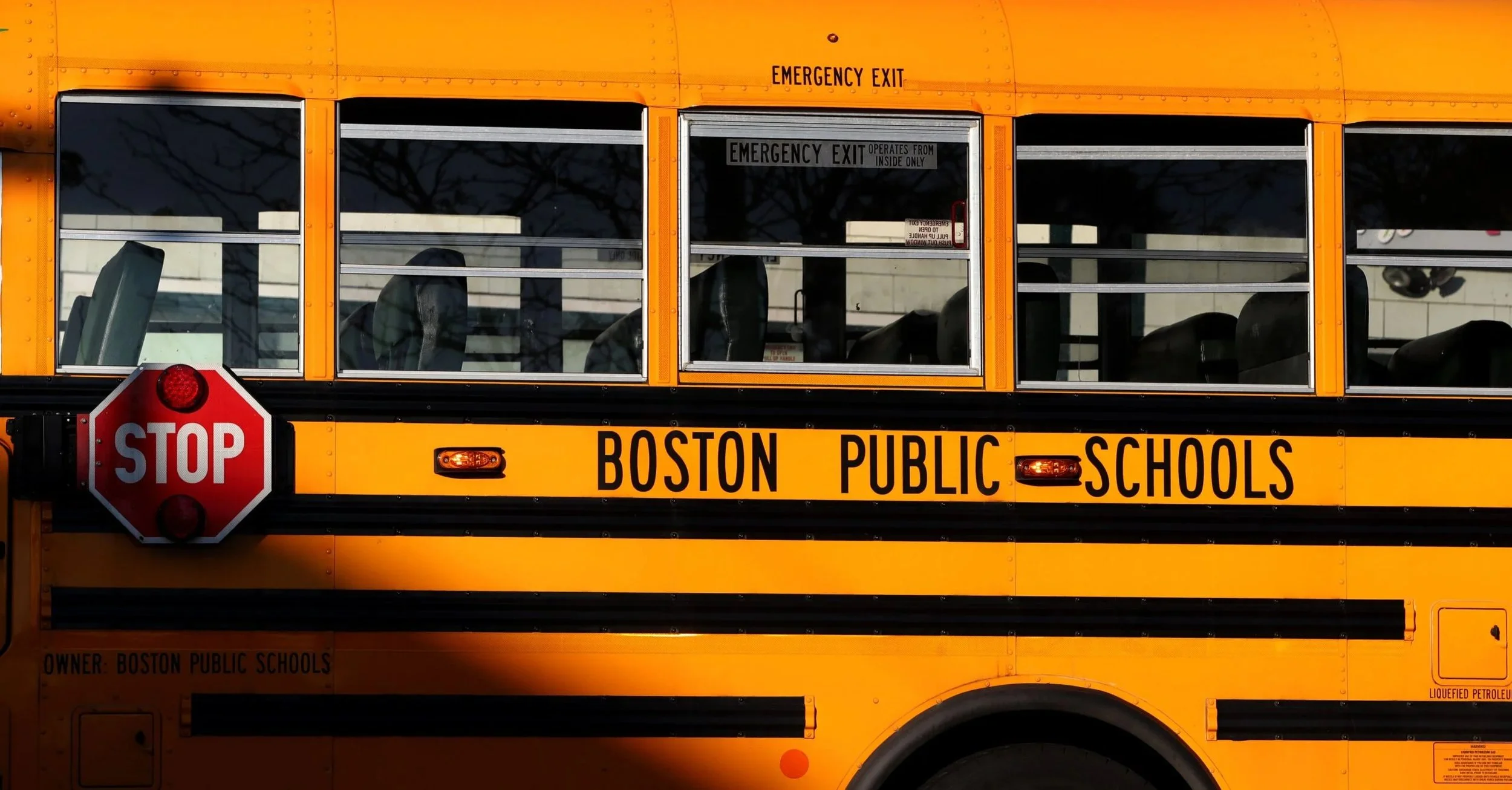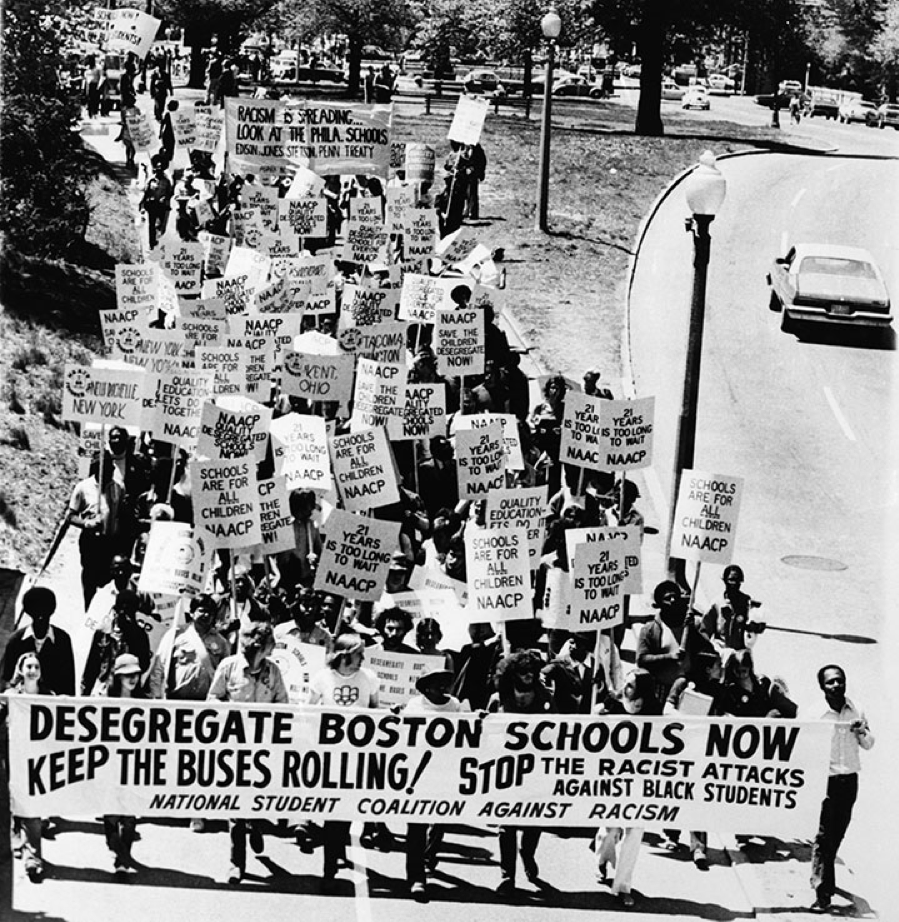
Commemorating the 50th Anniversary of School Desegregation and Busing in Boston by the Boston Desegregation and Busing Initiative
Boston Desegregation
and Busing Initiative
Perhaps the most important civic event of the second half of the 20th Century in Boston was the desegregation of the Boston Public Schools with busing. This followed continuous and heroic organizing for better schools led by the Black community 1960-1974 and resistance from the Boston School Committee.
Then Federal Judge Arthur Garrity found on June 21,1974 that the Boston School Committee had "intentionally brought about and maintained racial segregation" in the Boston public schools. He instituted busing as a remedy. Busing began September 12, 1974. It was met with wide scale opposition and resistance from many white residents who felt their kids should be able to attend their neighborhood schools. Schools were boycotted, rocks were thrown at buses of Black students, incidents of violence and retaliation, and bitter conflicts happened in some schools and neighborhoods even though a large majority of schools were desegregated peacefully.
Where we are Today:
The current Boston’s public school assignments policy continues Judge Garrity’s framework as students do not necessarily attend their nearest school. Garrity’s orders on hiring more teachers and principals of color and increasing diversity of the exam schools continue in various forms.
When images went across the country of some of the opposition to busing with some incidents of violence and racism, it has forever impacted Boston’s reputation.
Boston has far to go still to improve its schools and its racial wealth gap. But the city has gone a long way in diversifying its neighborhoods, its political leadership, its teachers, and some of its economic leadership. We are not the same city we were in 1974.
The Boston Desegregation and Busing Initiative is a committee of 38 people who have been community leaders or teachers in the Boston Public Schools.
We are organizing a series of events:
-
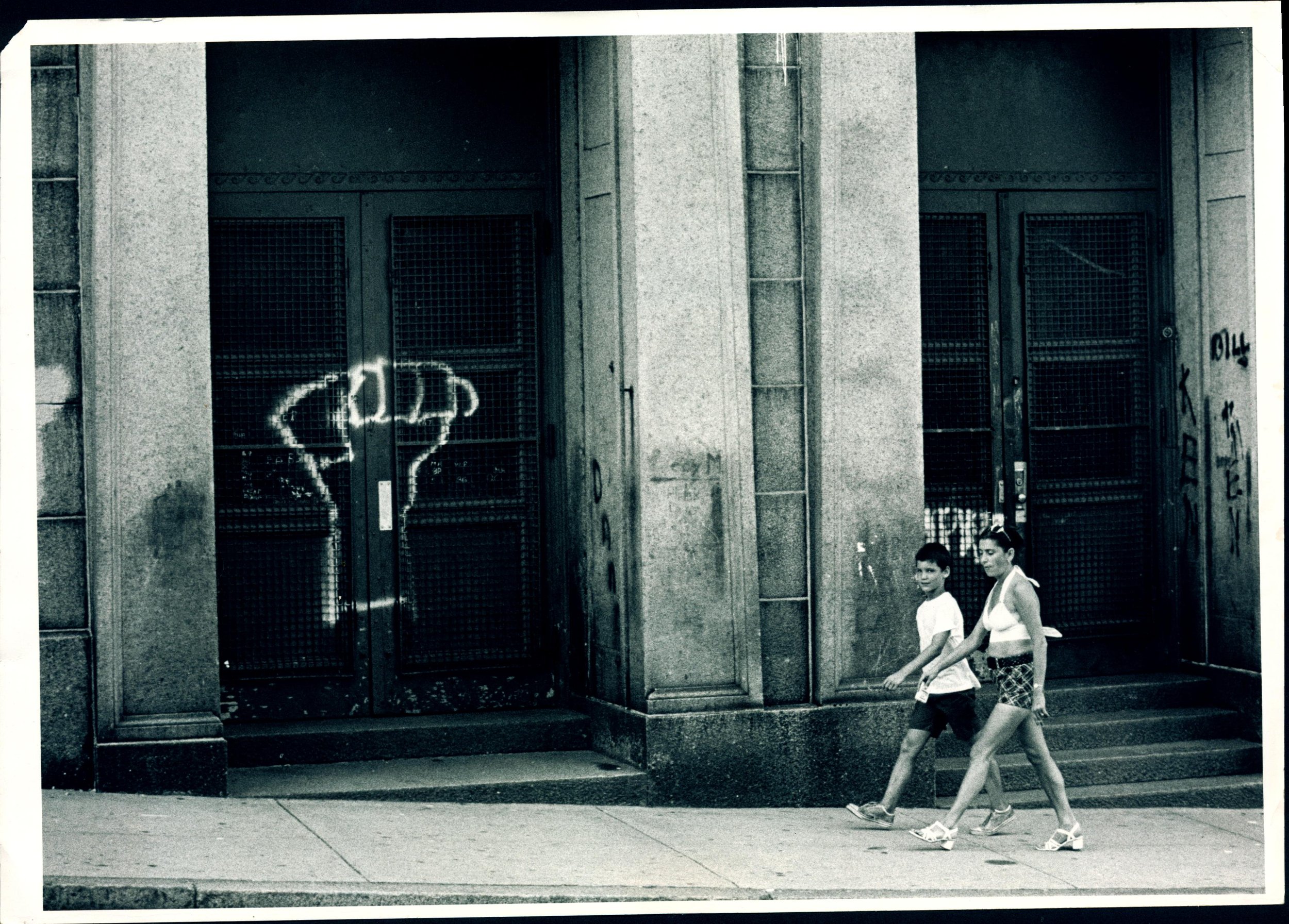
Five Forums
We are organizing five forums on the events from 1960-1980 around Boston school desegregation.
-
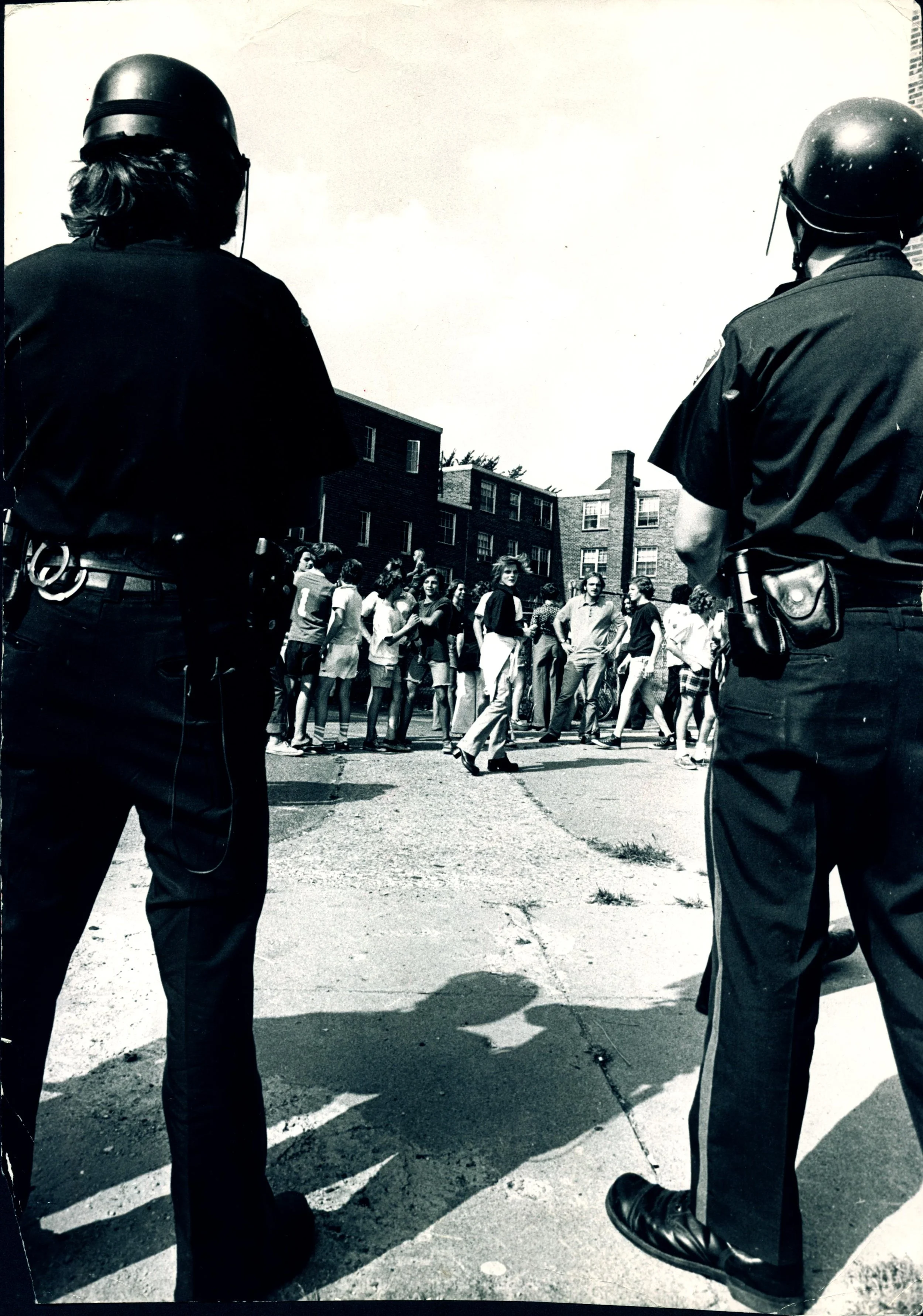
Photo Exhibits
Exhibits of photos and documents of the events around Boston.
-
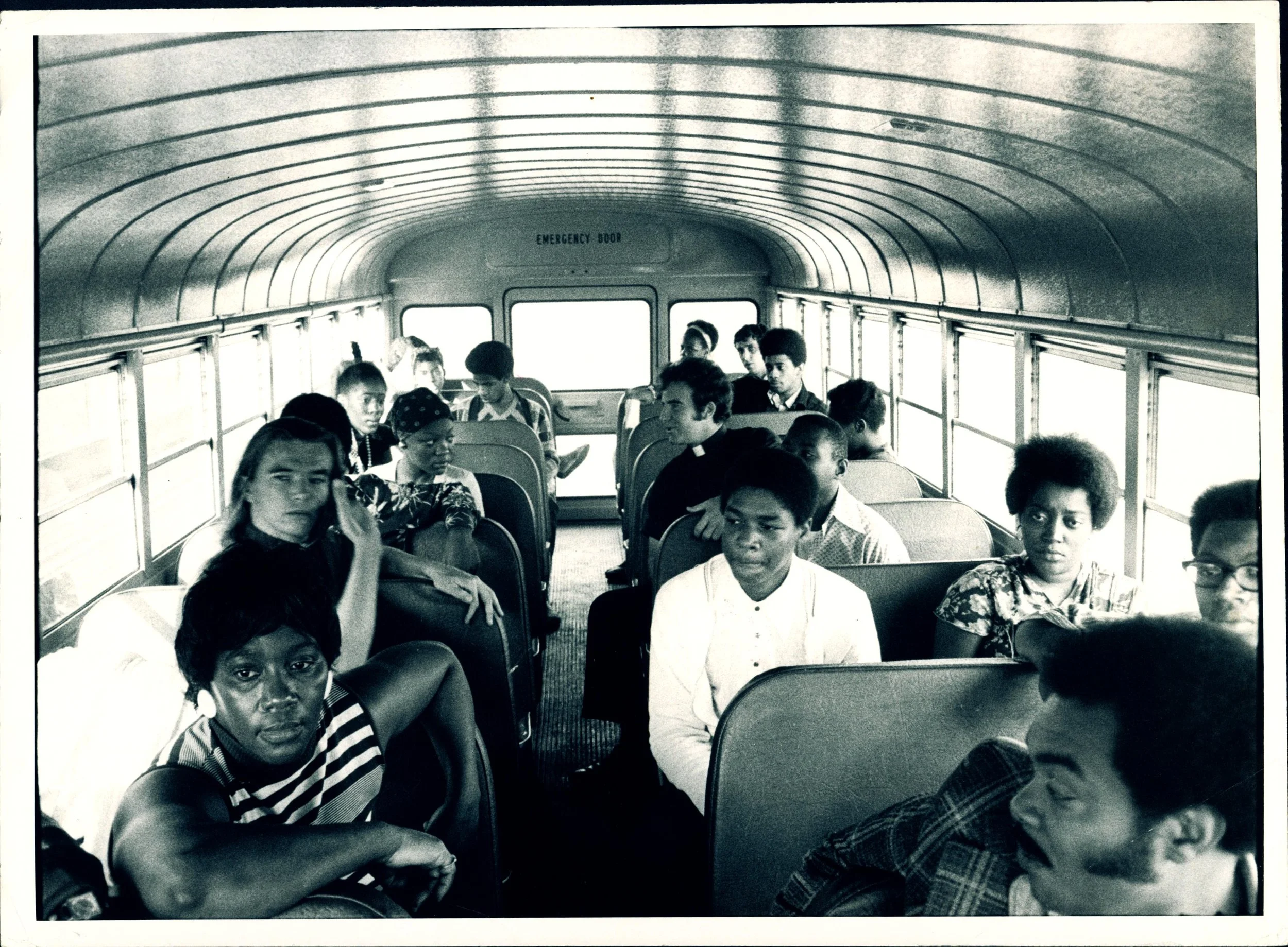
Partnerships with BPS
Partnerships with the Boston Public Schools to bring these events to the students, with the Boston Public Library to bring these events to residents of Boston; all around the 50th anniversary of desegregation of the Boston Public Schools and the beginning of busing.
-
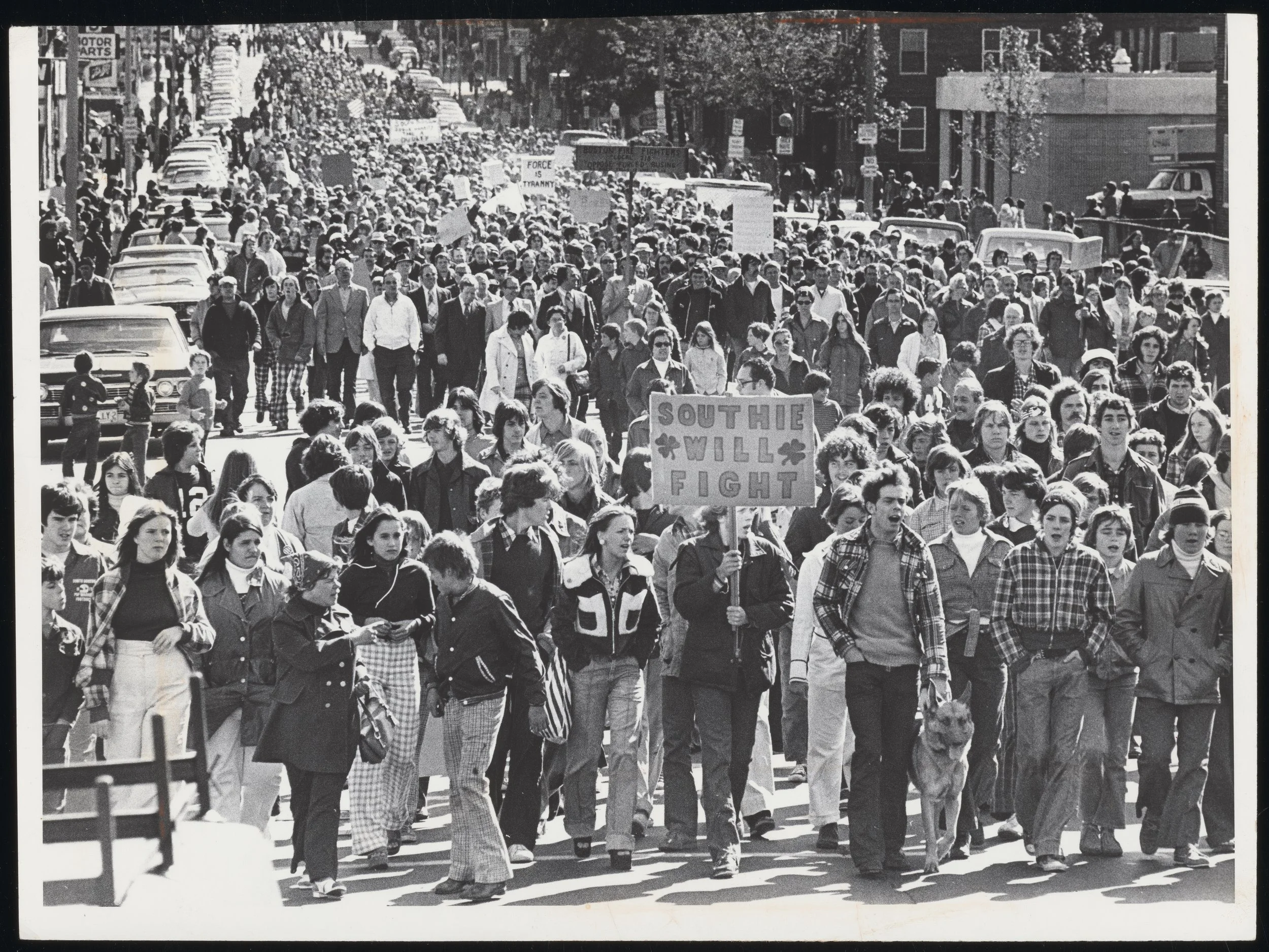
Speak Out!
Opportunities to voice what’s needed now and be involved in efforts to improve the Boston Public Schools.
What was at stake
“When we fight about education, we’re fighting for our lives. We’re fighting for what that education will give us, we’re fighting for a job, we’re fighting to eat, we’re fighting to pay our medical bills, we’re fighting for a lot of things. So, this is a total fight with us.”
-Ruth Batson, a leader in the fight for better schools in Boston
What happened
“The rich sat it out, the middle class [and some of the working class] fled, and the poor did the desegregating”.
Ron Formisano, author of Boston Against Busing: Race, Class and Ethnicity in the 1960’s and 1970’s
What now
Boston’s schools are now overwhelmingly students of color. There are many challenges of too many students at below grade level in English and Math, gaps in programs for students with disabilities and English language learners, and unreliable bus transportation. We want to enable residents and students to voice their concerns and participate in engaging and working with the Superintendent, the Mayor, administrators, teachers, the Boston Teachers Union in working together to improve our schools.
NOTE: THIS IS NOT ONLY A STORY OF BOSTON.
The Massachusetts State Legislature passed the first Racial Imbalance Law in the country in 1965 which was signed with strong support from Governor John Volpe.
The State Supreme Court rejected several appeals from the Boston School Committee when it sought to not comply with the law.
The State Department of Education twice withheld state funds from Boston for failures to comply with the Racial Imbalance Law. It devised the busing plan used for Phase 1 integration of the Boston Public Schools in September 1974.
And other work the Department of Education did on desegregating schools in Springfield, Cambridge, New Bedford, Worcester, Lowell, and Lawrence.
Then after more than 20,000 White residents rallied against busing on Boston Common in April 1974, the Legislature repealed the Racial Imbalance Law and Governor Sargent went along with that.
